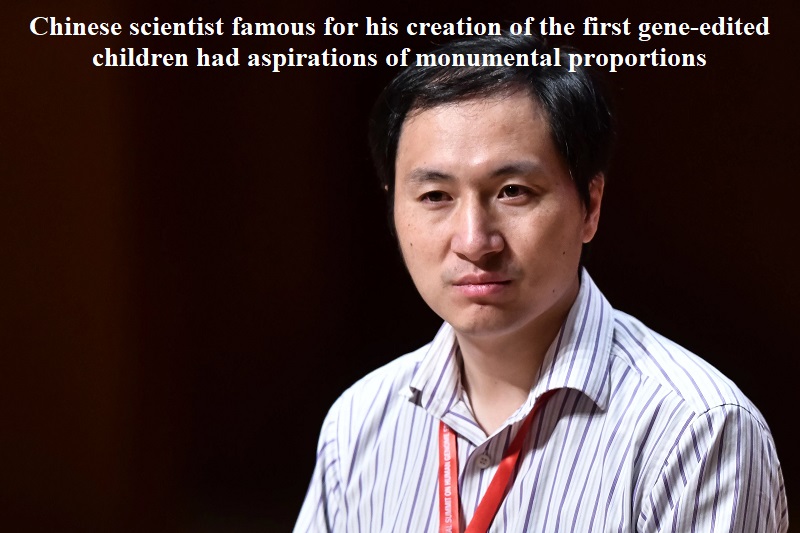
He Jiankui, the Chinese scientist infamous for being the first to genetically edit human children, harbored grand ambitions, according to a recent profile in The New Yorker. He became notorious for his use of CRISPR gene-editing technology on human infants, which resulted in a three-year prison sentence in 2019 for “illegal medical practices.” However, his aspirations extended far beyond this.
The scientist, known as JK to colleagues, reportedly shared his intention with them not only to cure severe diseases but also to achieve the audacious goal of significantly extending human life, aiming for an impressive 120 years.
He aimed to use gene editing to combat diseases such as cancer, Alzheimer’s, and HIV, but his ambitions went even further. He acknowledged that his work would be controversial but believed that families needed this technology, and he was willing to face criticism on their behalf.
JK gained international attention for his controversial experiment in which he used CRISPR to genetically modify the embryos of twin girls, known by pseudonyms Lulu and Nana, making them supposedly immune to HIV. This groundbreaking yet ethically contentious endeavor propelled JK into the global spotlight.
He grappled with the ethical implications of gene editing on embryos and sought advice from renowned scientist James Watson, who simply advised him with a handwritten note saying, “Make people better.” This guidance was prominently displayed in He’s lab.
JK’s ultimate goal was to create a “genetic vaccine” capable of preventing a wide range of cancers, diseases, and disorders. However, many questions remain unanswered about the identities and health of the children and parents involved in He’s embryo editing experiments.
Reports suggest that after his release from prison last year, He is actively pursuing his mission to create a genetic vaccine. He currently leads the genetic medicine department at the Wuhan Institute of Technology, positioning him to continue his work. However, the world is closely watching his endeavors with a mixture of curiosity and concern.

Post Your Comments